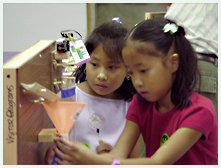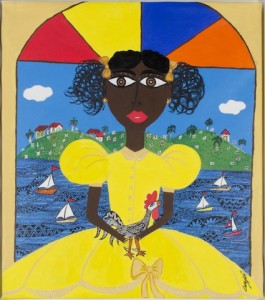For some months now museum educator, consultant, and blogger Rebecca Herz and I have been exchanging thoughts on the roles and future of museum educators, mostly by email. But we’ve also been talking about making our conversations more public. Rebecca’s recent thoughtful post, What Does a Museum Educator Do? (And Do We Need Them?) offers, I think, a great opportunity to open up the discussion. So in this post I hope to reflect on some of the issues Rebecca has raised. It would be great to have other colleagues comment or post as well.
The changing ways in which we describe the roles of educators
In general, in response to the range of titles and roles that Rebecca discusses so well in her piece, I come down firmly on the side of those roles that support the unique qualities of museums as intentionally designed informal environments for learning and engagement. In a number of posts that I wrote in 2011 and 2012 on what’s next for museum educators (and that got Rebecca and me talking) I ‘fessed up to my own past as a “formal education enabler” I urged museum educators to focus less on formal education materials and methods and more on interpretive planning in exhibitions and visitor engagement in the museum, both on site and online.
The changing ways in which we describe the visitor experience
And, in fact, Rebecca notes the growth of these roles as “two dramatic shifts in the work of education departments. First is the involvement of education staff in the work of interpretation, indicating involvement in the creation of exhibitions….The second is the shift from education to engagement. Participation and public practice do not signify an educational experience, but rather, an engaging one.” Regarding this last comparison it seems to me that the term “engagement” does denote a shift away from creating experiences in museums that are similar to those in school—tours or programs that are based on lesson plans, learning goals, and curriculum standards—and a movement toward the crafting of visitor interactions with exhibits and with each other that engage both mind and body, relate to prior knowledge and experience, and are more suited to the informal spaces of museums. It is these kinds of experiences that I think educators should be expert in creating. Rebecca asks what kinds of skills museum educators should have to be effective in these areas. I have some thoughts on this that might appear in another post. Do you agree with Rebecca’s assessment of these trends, and what kinds of skills do you think are needed?
More inclusive practice
Finally, Rebecca mentions the idea that educators might take on the role of community or social worker, and credits this concept to me as well as to Lois Silverman, Elaine Gurian and others. I hope that my posts about The Empathetic Museum are not being interpreted as advocating a new role for museums or educators. For me empathy, community orientation, and sensitivity to concerns deeply affecting our audiences are not additional responsibilities but simply a re-framing of the standards commonly advocated for museums of the 21st century: “in the service of society and its development” (ICOM), inclusive, accessible, participatory, welcoming, convivial, and so forth. While museum educators, I hope, are deeply involved with the communities which their museum serve, I believe that it is not specifically educators but the museum as a whole, from the top down and bottom up, that should be so oriented by its mission statement, policies, and procedures.
Menina con Gallo (Young Girl with Rooster), 2013
I think it is important for museums to be involved in the life and concerns of their communities, but in ways that are appropriate to their role. In this recent post on what museums might do to help communities dealing with the influx of Unattended Immigrant Children I suggest that museums could work with humanitarian organizations, not in providing clothing, food, or shelter, but in providing meaningful programs and activities, something in which museums excel. I also suggest that museums can provide safe places for informed discussion on the issues raised by this national crisis, and provide examples of museums engaged in this endeavor. Museum educators would, of course, be key in leading these types of activities, but to my mind this is philosophically aligned with the traditional role of museum educators, not a redefinition.
I hope Rebecca and I will hear from lots of you. In addition to commenting on this post you can reach me on Twitter @gretchjenn, and Rebecca @rebeccaherz.
If you are reading this on email, and wish to comment or subscribe, please click on http://www.museumcommons.com.

